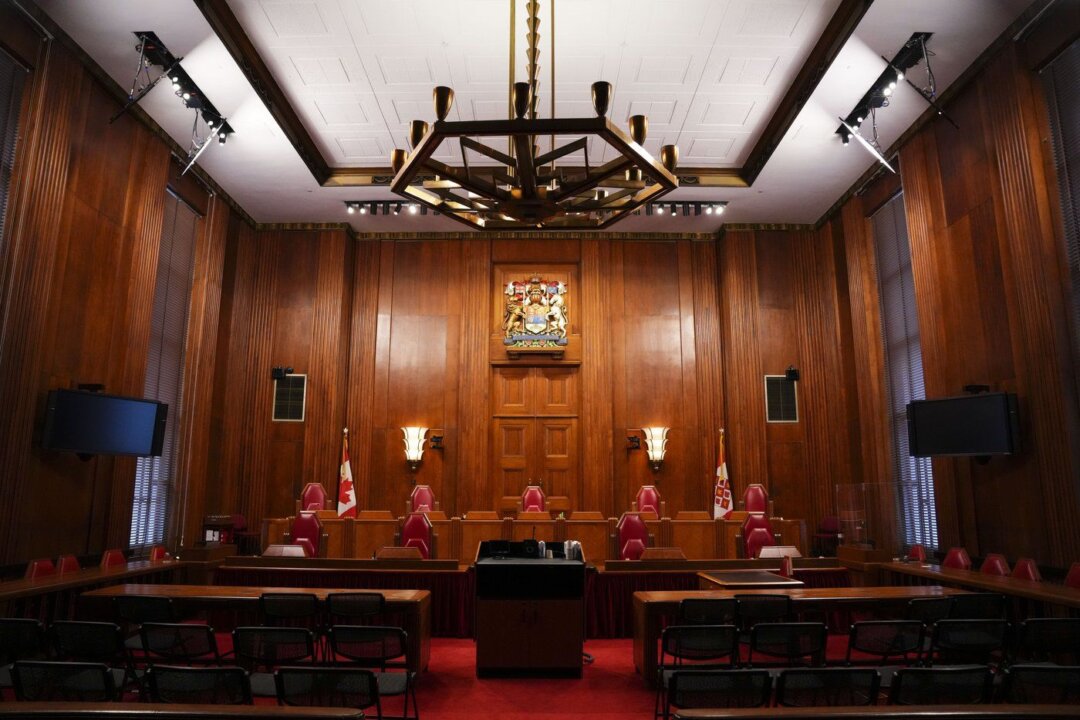Top Stories
Federal Grants Spark Legal Battles Against Provincial Laws

Recent legal disputes have emerged as groups benefiting from federal grants challenge provincial laws in Canada. Notably, the governments of **Alberta** and **Saskatchewan** are facing lawsuits regarding their school pronoun policies. Additionally, various organizations are intervening in provincial legal actions led by **Ontario** and others against the federal carbon tax. These developments highlight a significant intersection of federal funding and provincial governance.
Legal experts and policy analysts are closely observing these cases, as they raise questions about the implications of federal financial support on provincial autonomy. According to **David Leis**, president of the **Frontier Centre for Public Policy**, the situation illustrates a form of indirect interference by the federal government in provincial legislation. Leis emphasizes that even if federal funds are not directly used for these legal challenges, the reliance on taxpayer money by these groups suggests an underlying influence.
The court challenges in Alberta and Saskatchewan center around policies that require schools to use students’ preferred pronouns. Advocacy groups argue that these laws infringe on rights related to gender identity and expression. As these cases unfold, the role of federal grants in supporting the organizations taking legal action remains a focal point of discussion.
In Ontario, the situation is further complicated by opposition to the federal carbon tax. Organizations that receive federal funding are stepping in to support the province’s legal challenges against this tax, which has sparked considerable debate across the country. Critics argue that such federal grants could be viewed as an attempt to shape provincial policies and undermine local governance.
The financial dynamics at play are significant. Leis points out that federal grants are essential for many advocacy groups, providing them with the resources necessary to engage in these legal battles. He posits that when taxpayer money is funneled into these organizations, it raises ethical questions about the balance of power between federal and provincial authorities.
As these cases progress through the courts, the outcomes could set important precedents for the future of provincial legislation in Canada. The intersection of federal funding and local governance will likely continue to be a contentious topic among policymakers, legal experts, and the public alike.
In conclusion, the ongoing litigation involving federal grants and provincial laws not only raises legal questions but also challenges the boundaries of governmental authority in Canada. The resolution of these disputes may have lasting implications for the relationship between federal and provincial governments, as well as for the rights of individuals affected by these laws.
-

 Science3 months ago
Science3 months agoToyoake City Proposes Daily Two-Hour Smartphone Use Limit
-

 Top Stories3 months ago
Top Stories3 months agoPedestrian Fatally Injured in Esquimalt Collision on August 14
-

 Health3 months ago
Health3 months agoB.C. Review Reveals Urgent Need for Rare-Disease Drug Reforms
-

 Technology3 months ago
Technology3 months agoDark Adventure Game “Bye Sweet Carole” Set for October Release
-

 World3 months ago
World3 months agoJimmy Lai’s Defense Challenges Charges Under National Security Law
-

 Lifestyle3 months ago
Lifestyle3 months agoVictoria’s Pop-Up Shop Shines Light on B.C.’s Wolf Cull
-

 Technology3 months ago
Technology3 months agoKonami Revives Iconic Metal Gear Solid Delta Ahead of Release
-

 Technology3 months ago
Technology3 months agoApple Expands Self-Service Repair Program to Canada
-

 Technology3 months ago
Technology3 months agoSnapmaker U1 Color 3D Printer Redefines Speed and Sustainability
-

 Technology3 months ago
Technology3 months agoAION Folding Knife: Redefining EDC Design with Premium Materials
-

 Technology3 months ago
Technology3 months agoSolve Today’s Wordle Challenge: Hints and Answer for August 19
-

 Business3 months ago
Business3 months agoGordon Murray Automotive Unveils S1 LM and Le Mans GTR at Monterey









